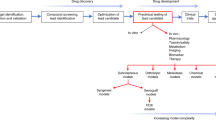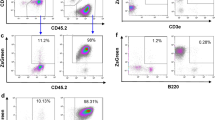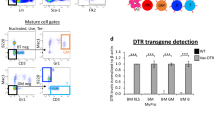Abstract
ADMINISTRATION of antitumour agents to patients is frequently followed by loss of hair. This loss is usually reversible in the sense that new hair replaces that lost, often during continued therapy. These changes have been noted following the administration of a variety of anti-tumour agents including Cyclophosphamide, colcemid, methotrexate, hydroxyurea, vinblastine and vincristine, which have in common the following attributes: (1) they are effective in the therapy of neoplastic disease in humans and experimental animals; (2) they frequently cause alopecia in humans; and (3) they do not cause similar alopecia in conventional laboratory animals. Cyclophosphamide was used in the work described here because of the relative prominence of its alopecic property.
This is a preview of subscription content, access via your institution
Access options
Subscribe to this journal
Receive 51 print issues and online access
$199.00 per year
only $3.90 per issue
Buy this article
- Purchase on Springer Link
- Instant access to full article PDF
Prices may be subject to local taxes which are calculated during checkout
Similar content being viewed by others
References
Homan, E. R., Zendzian, R. P., and Busey, W. M., The Pharmacologist, 10, 172 (1968).
Author information
Authors and Affiliations
Rights and permissions
About this article
Cite this article
HOMAN, E., ZENDZIAN, R., BUSEY, W. et al. Loss of Hair in Experimental Animals induced by Cyclophosphamide. Nature 221, 1058–1059 (1969). https://doi.org/10.1038/2211058a0
Received:
Issue Date:
DOI: https://doi.org/10.1038/2211058a0
This article is cited by
Comments
By submitting a comment you agree to abide by our Terms and Community Guidelines. If you find something abusive or that does not comply with our terms or guidelines please flag it as inappropriate.



